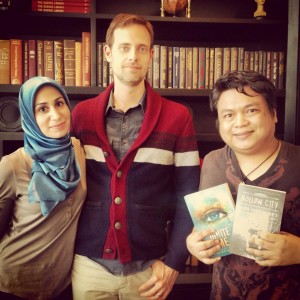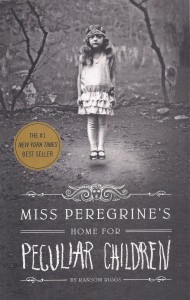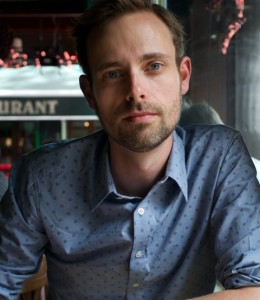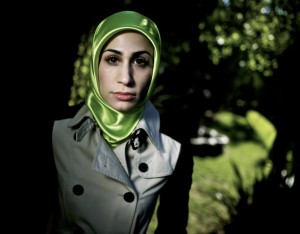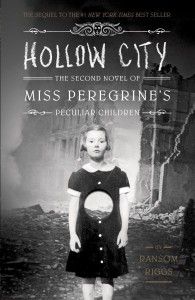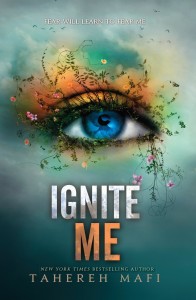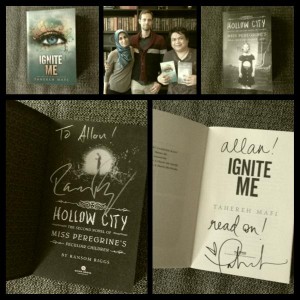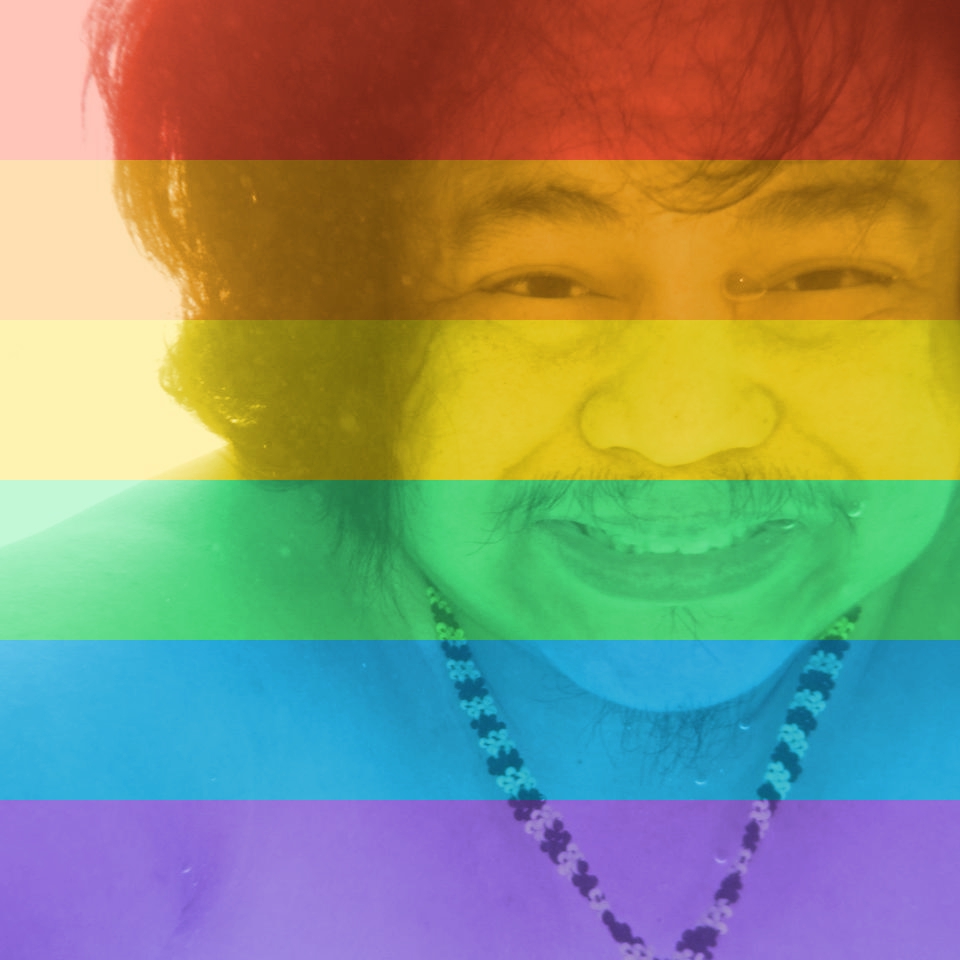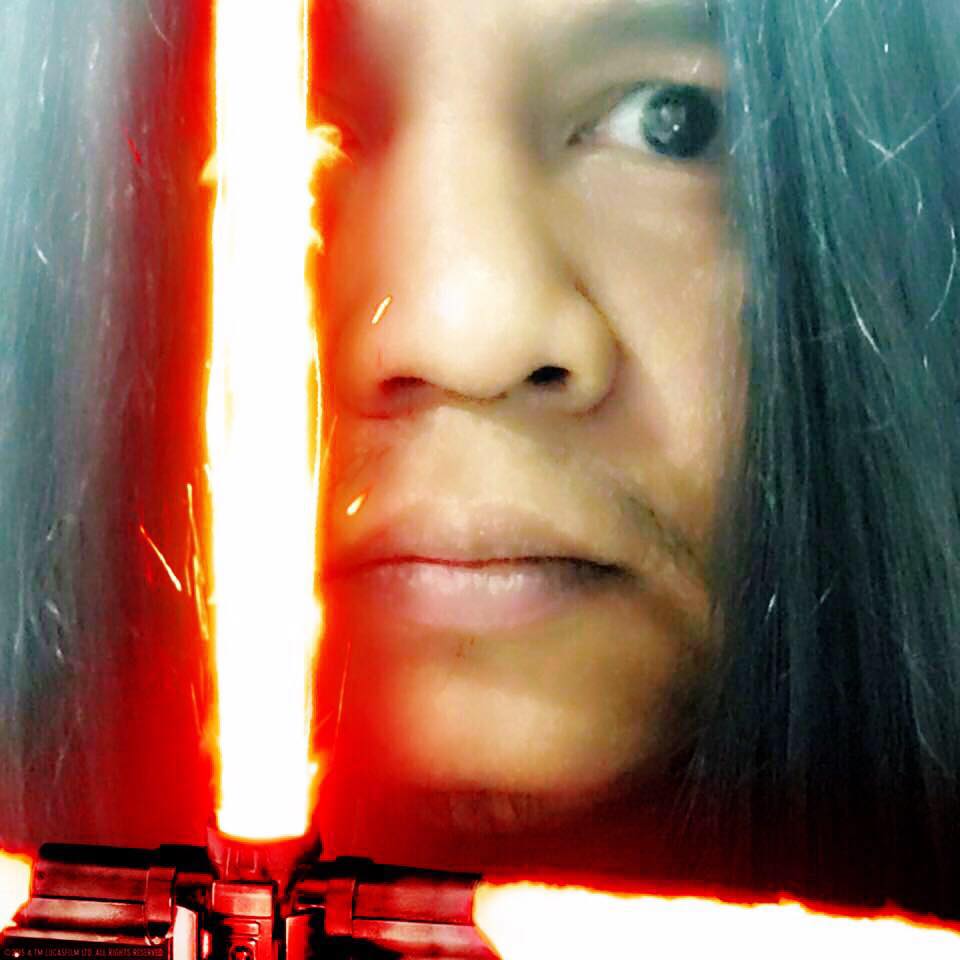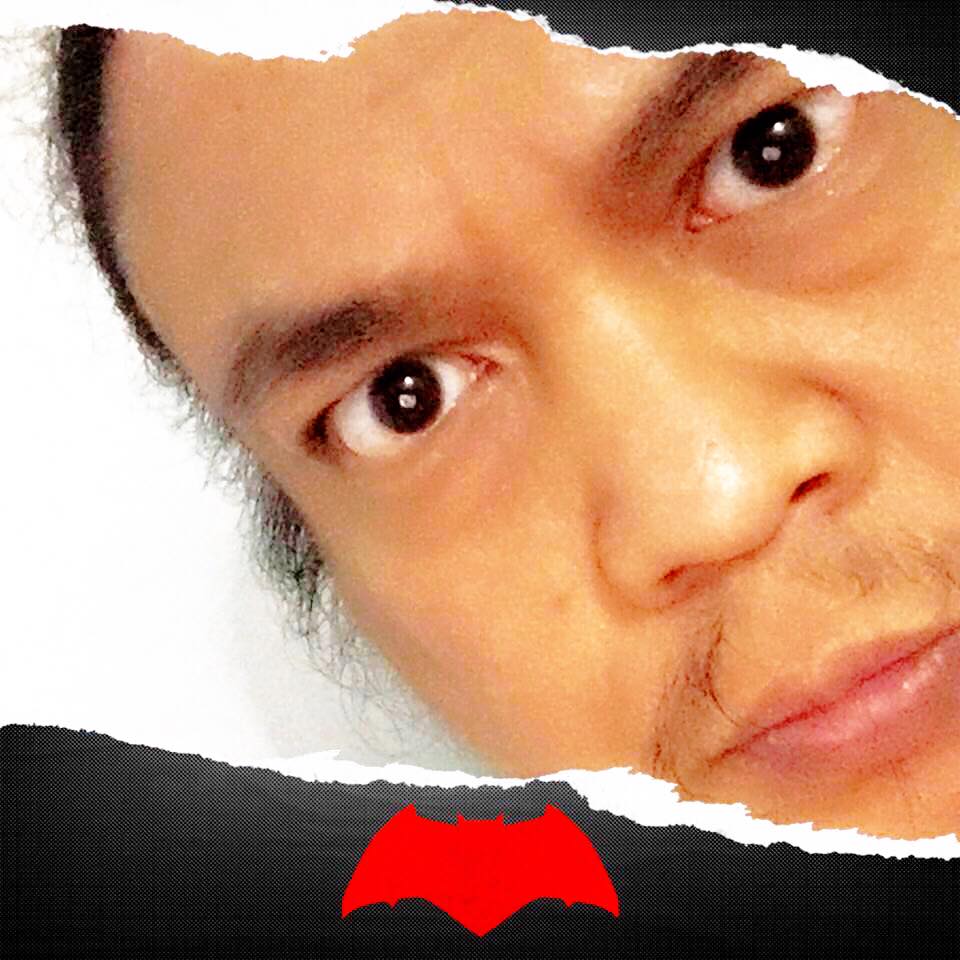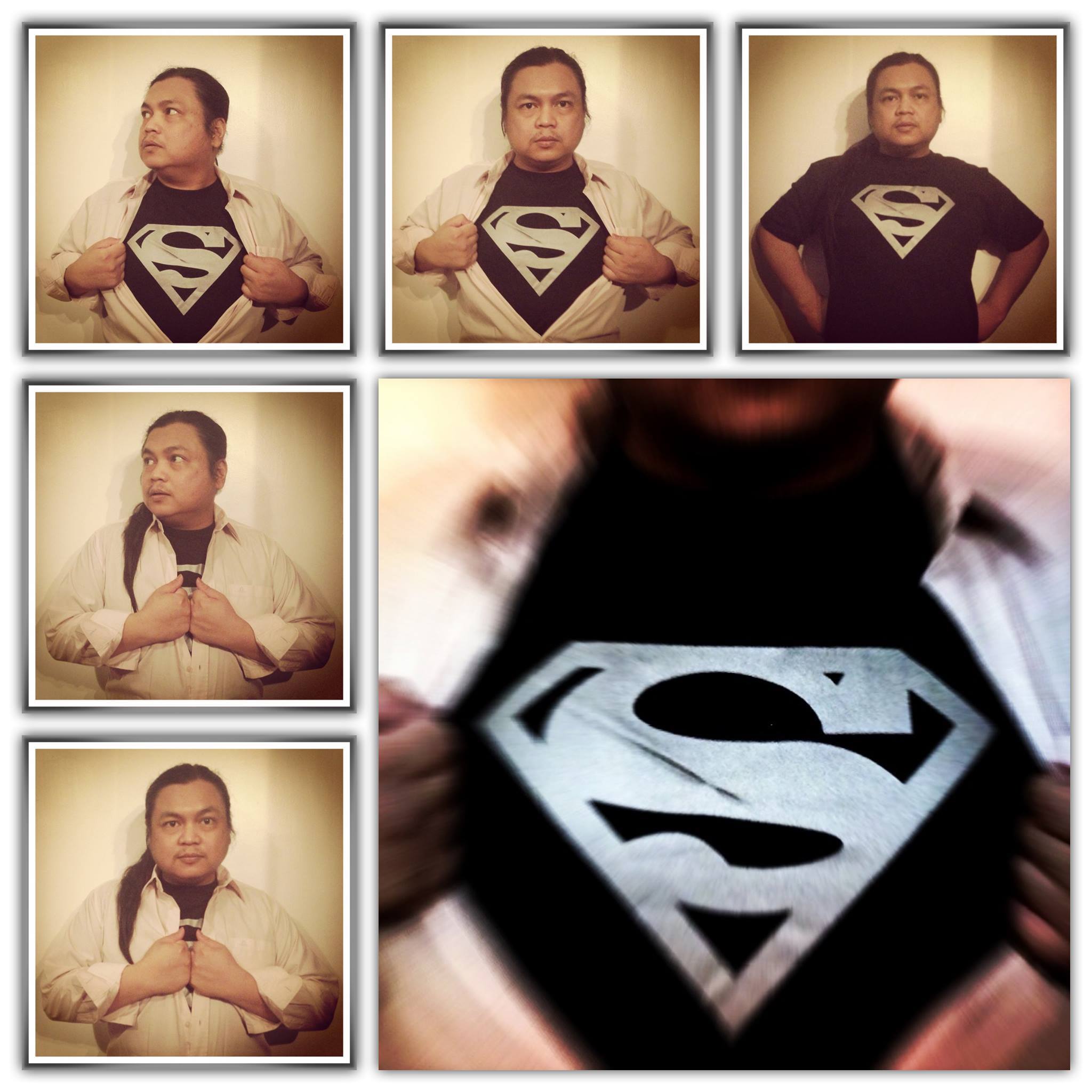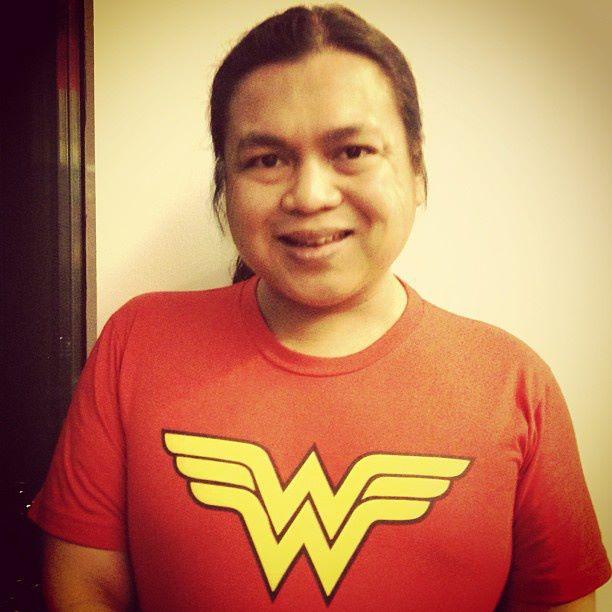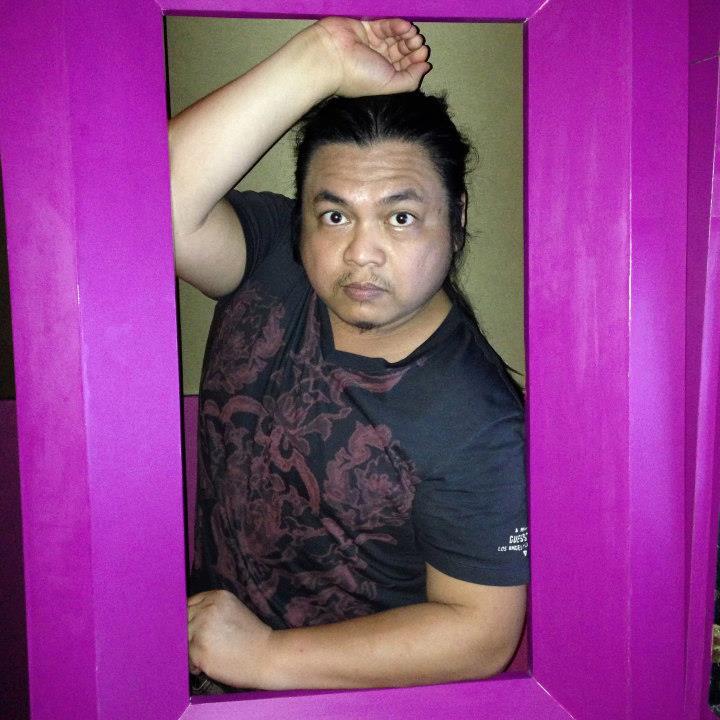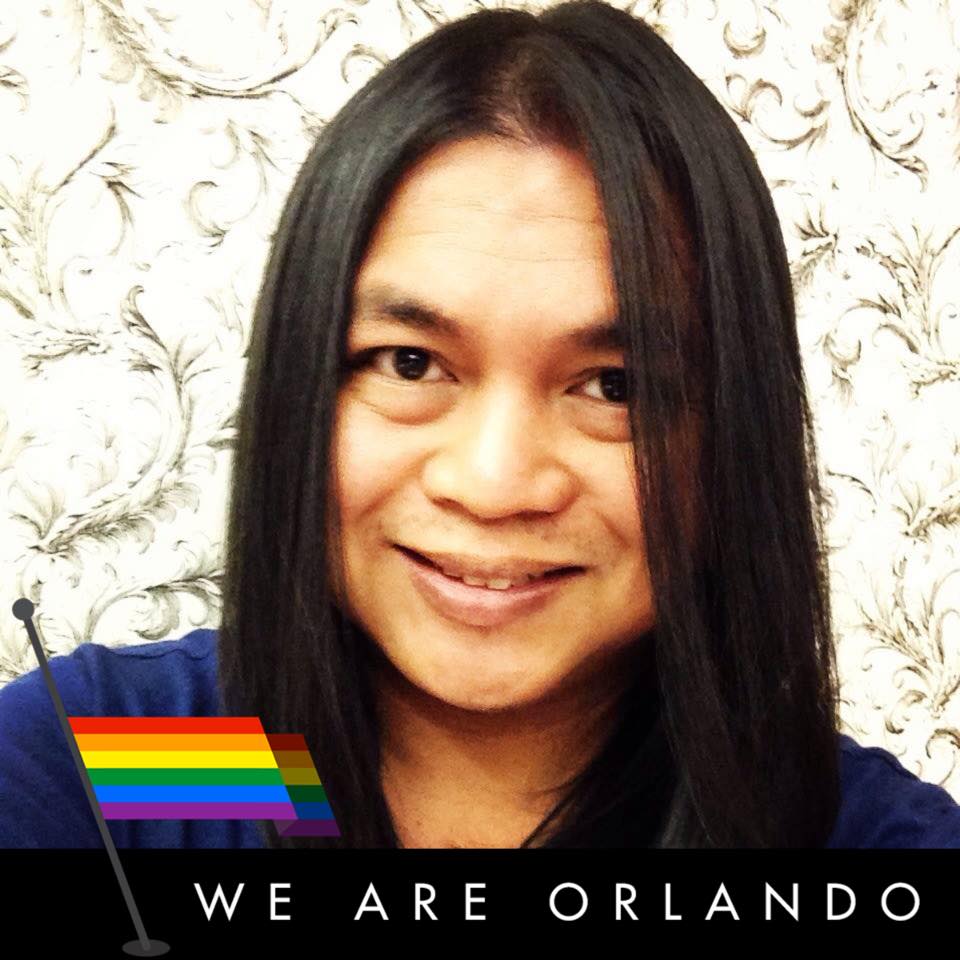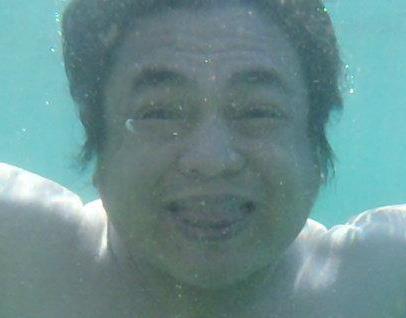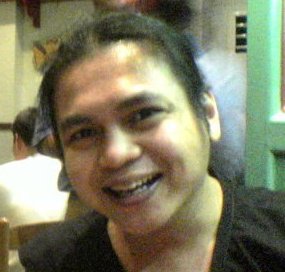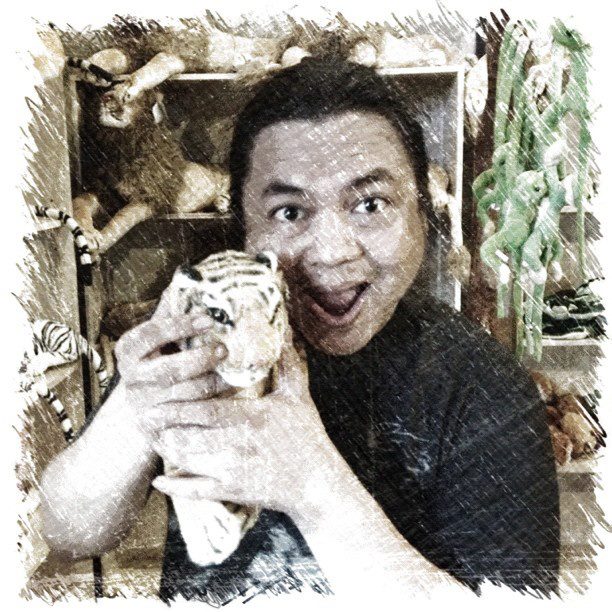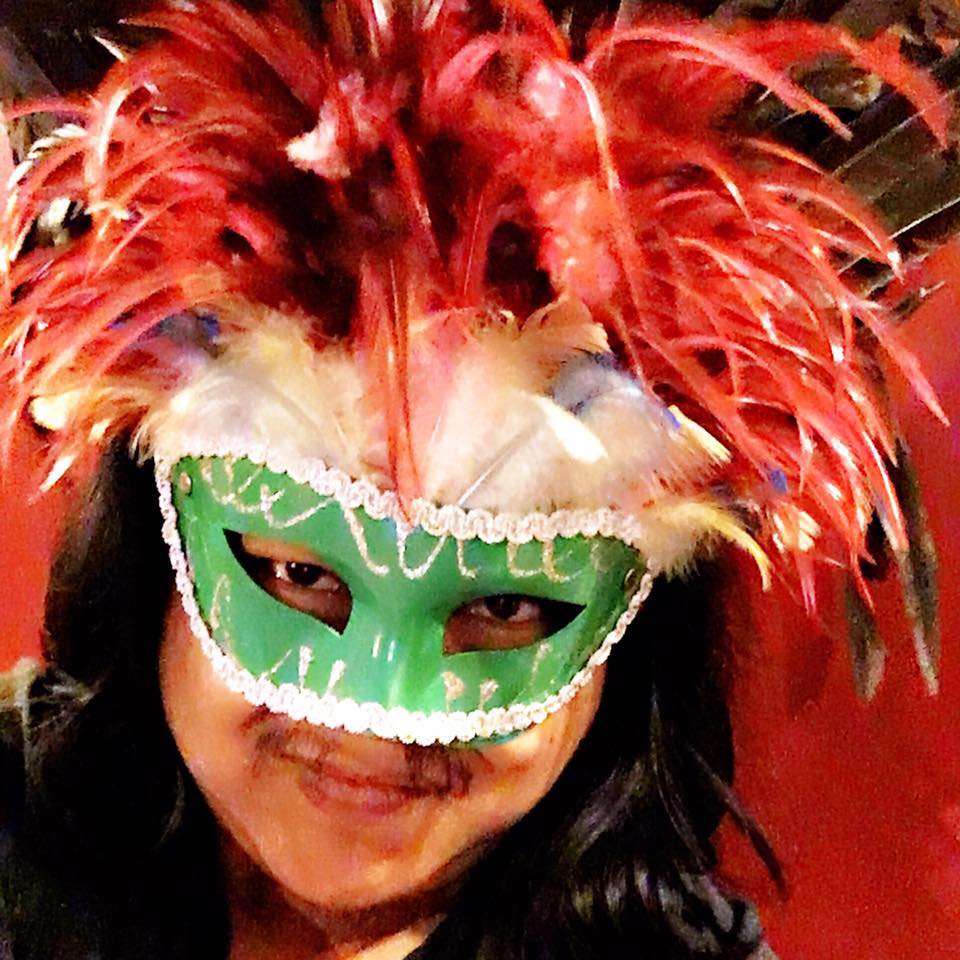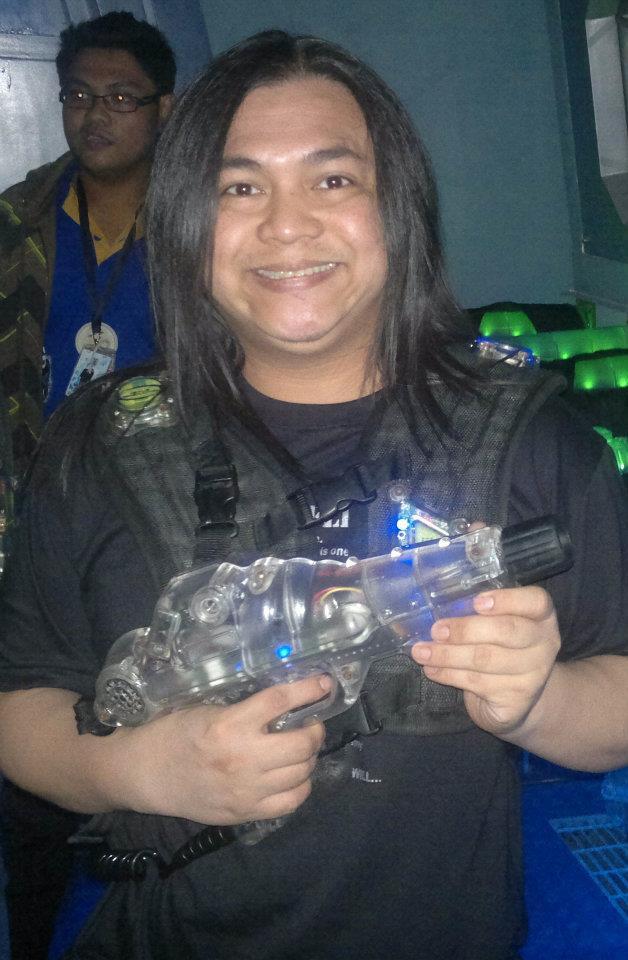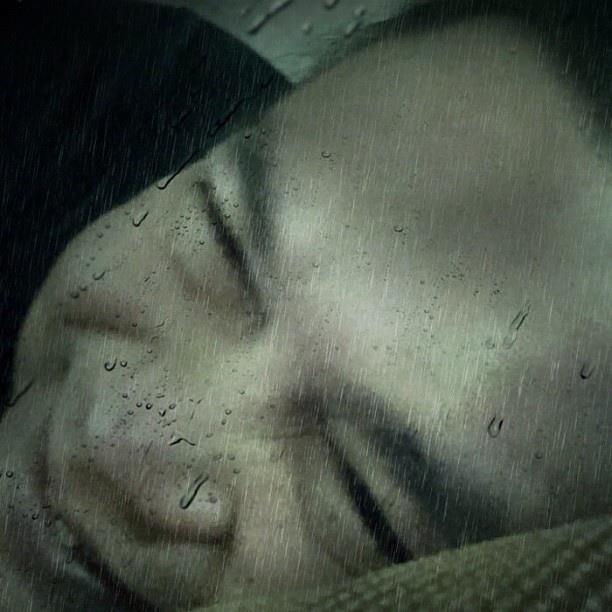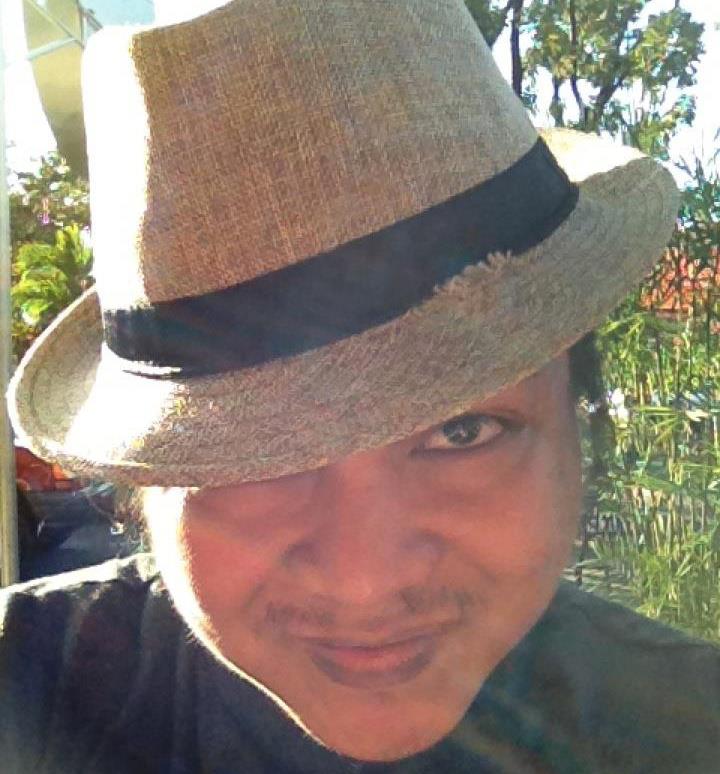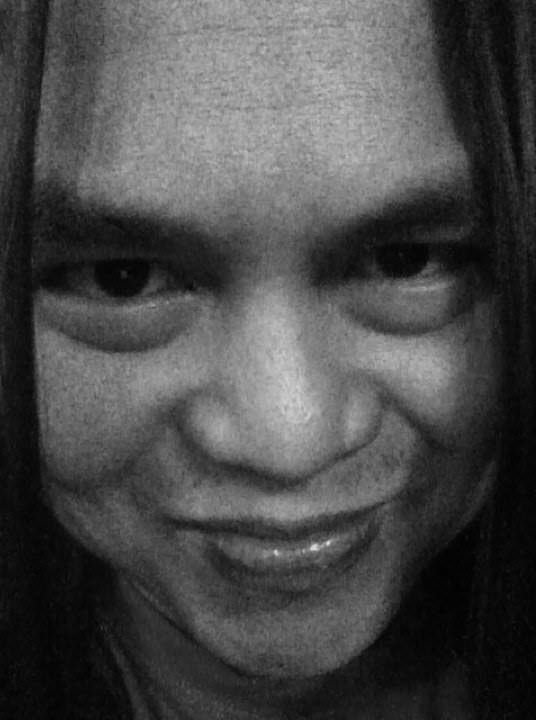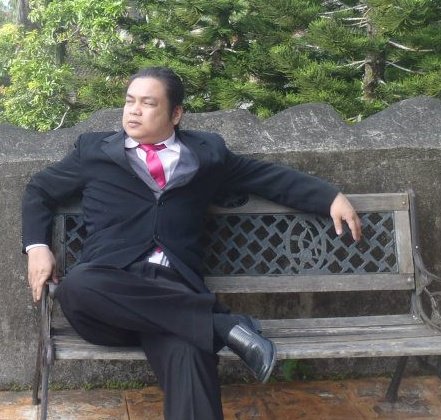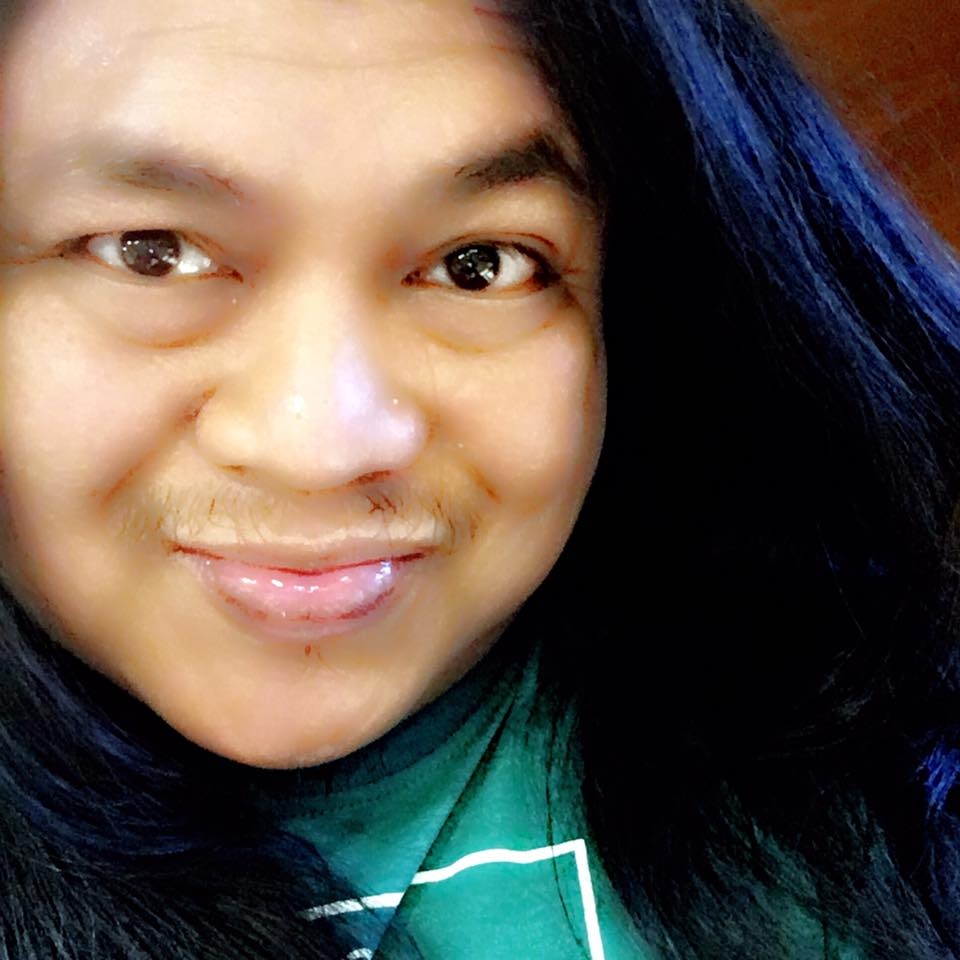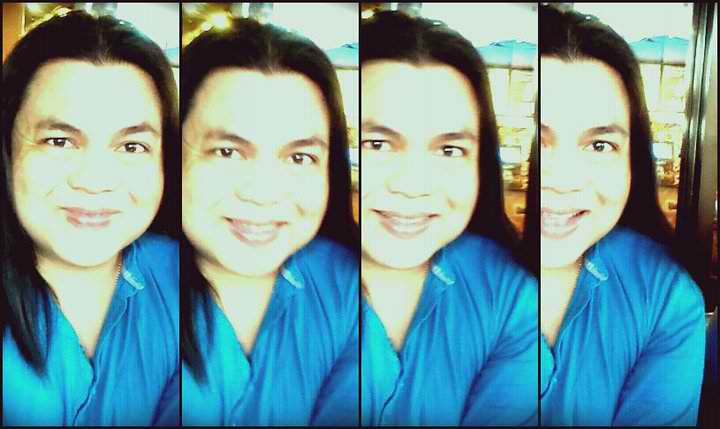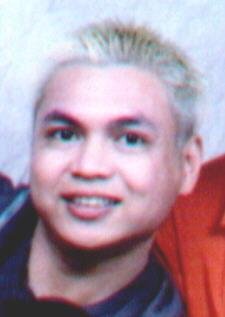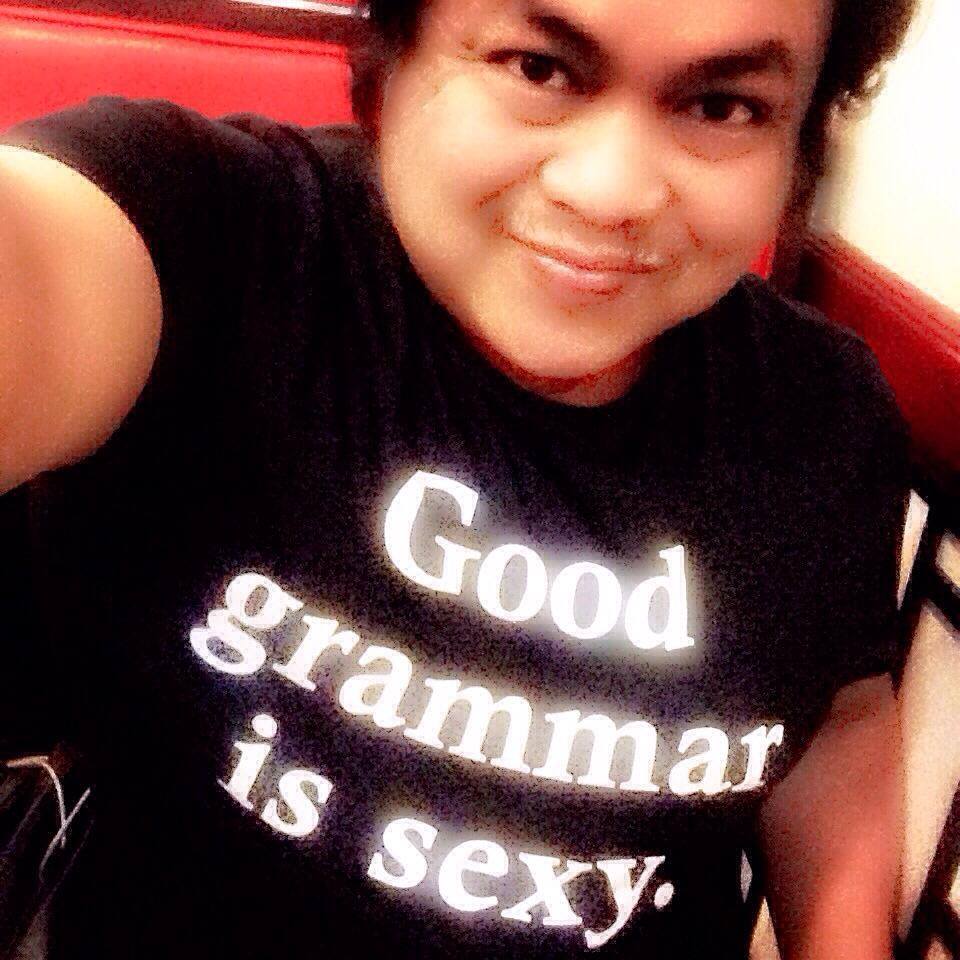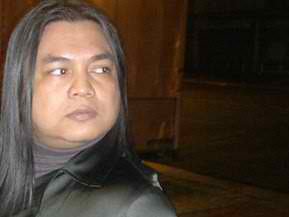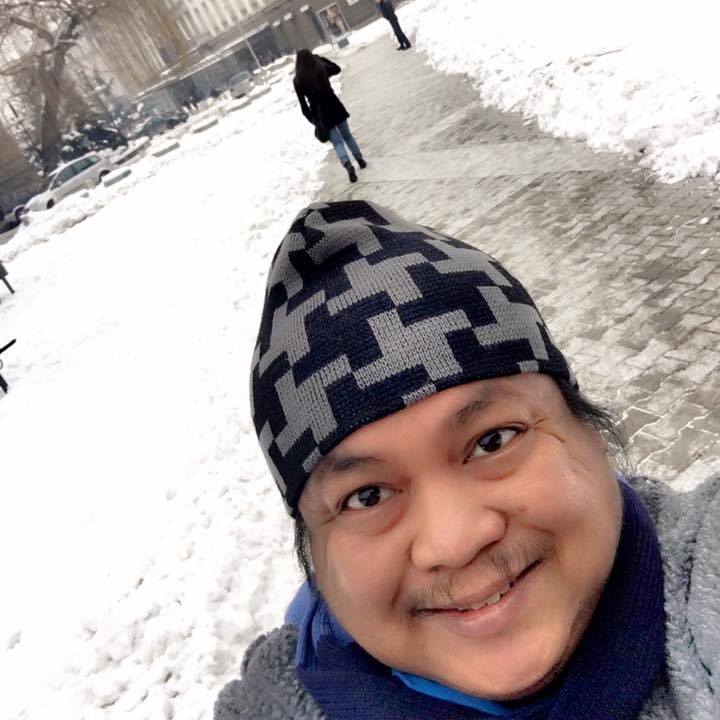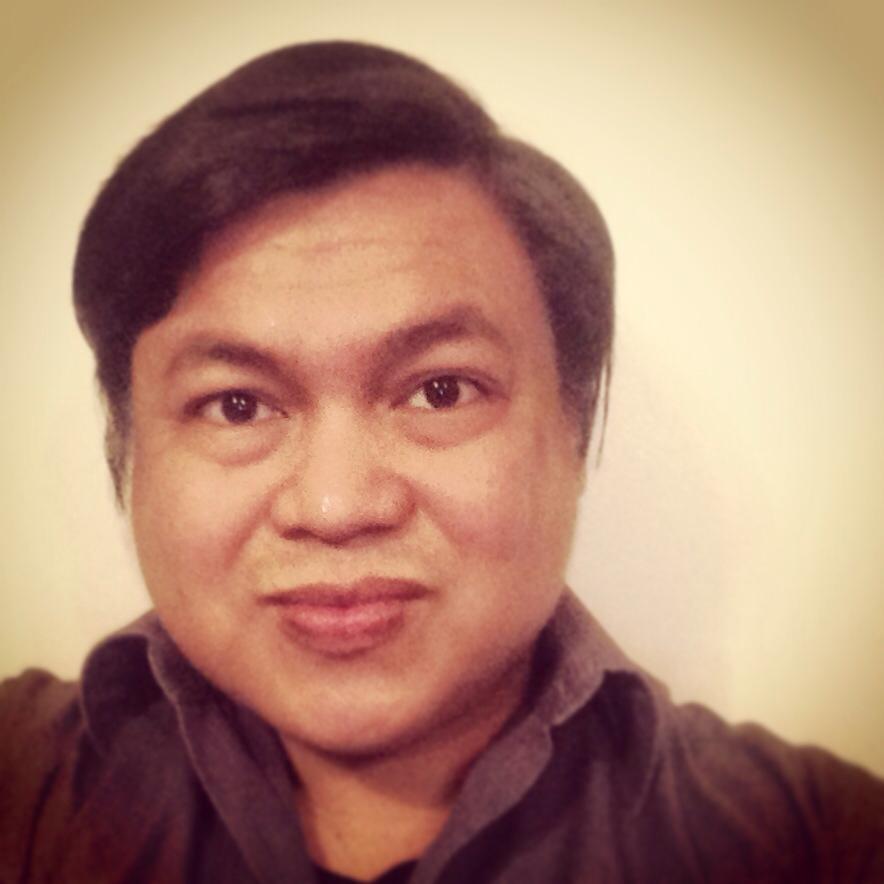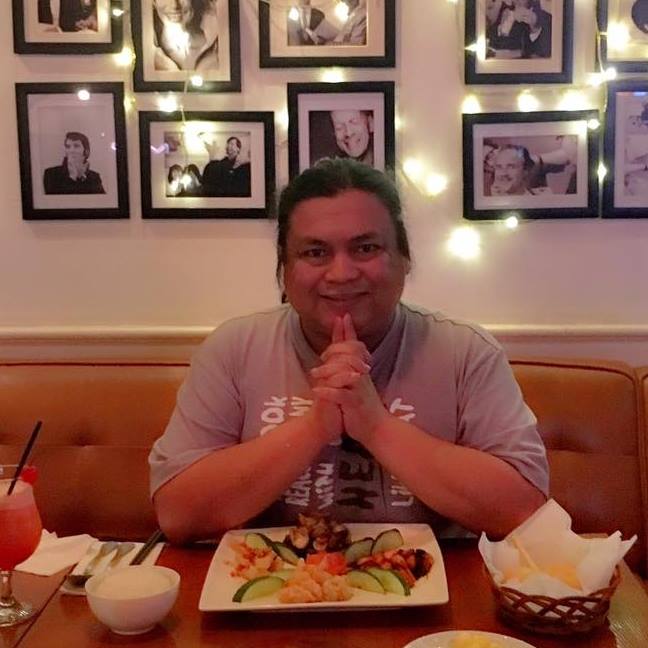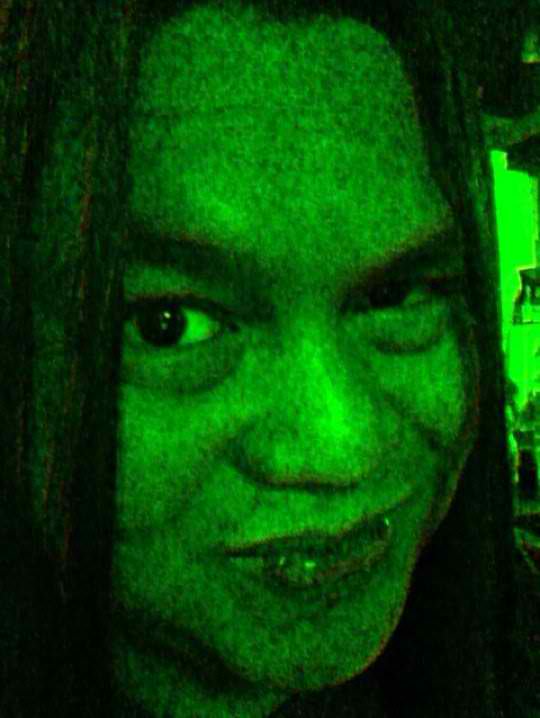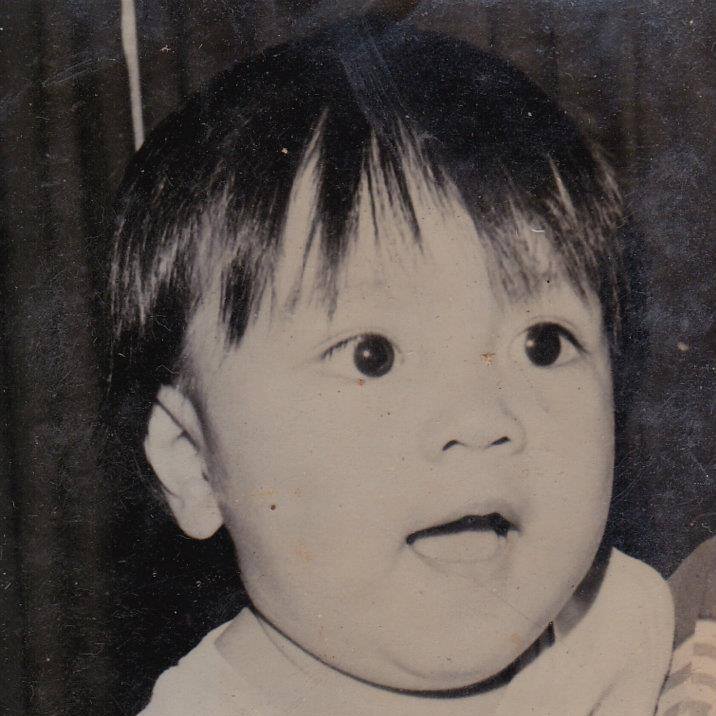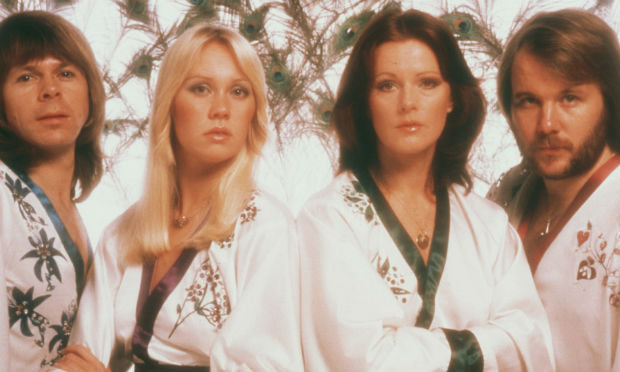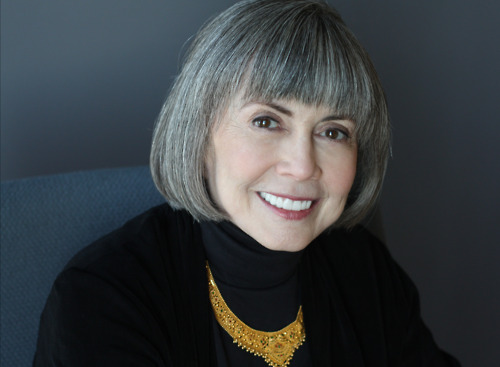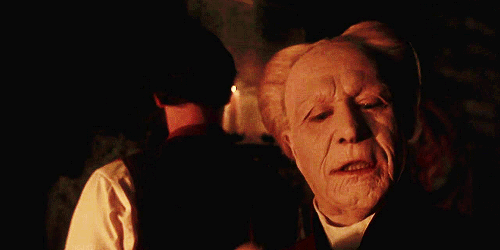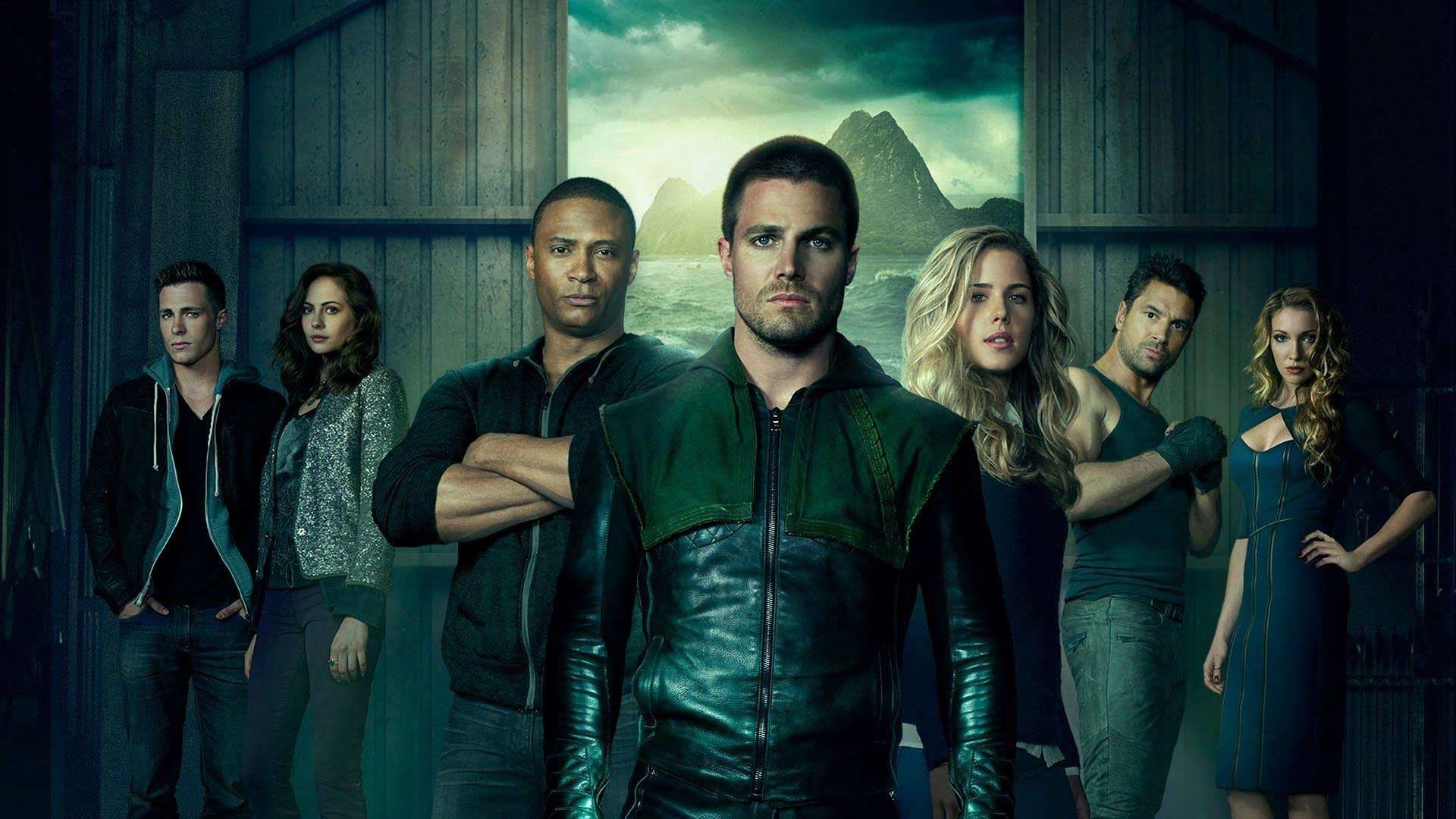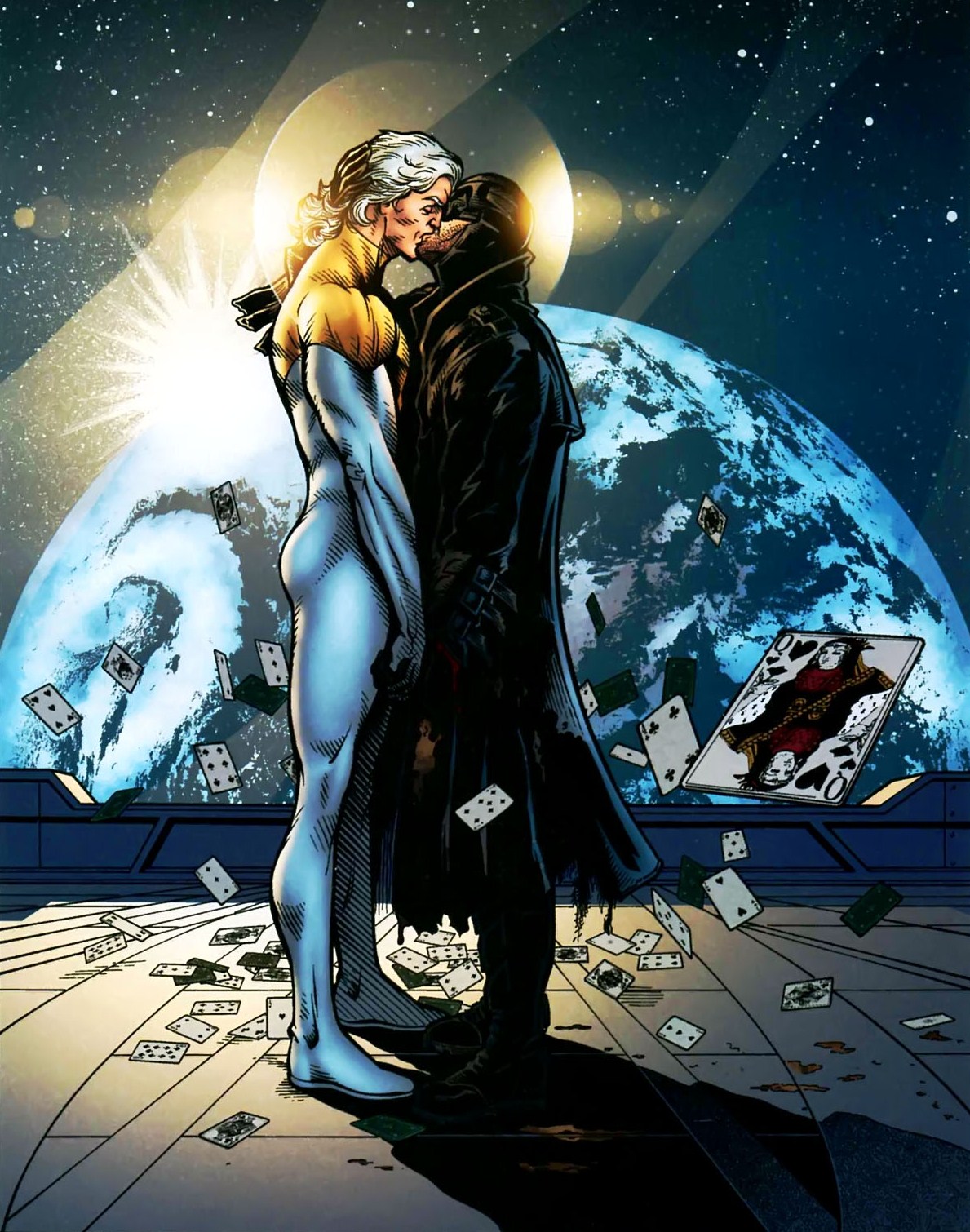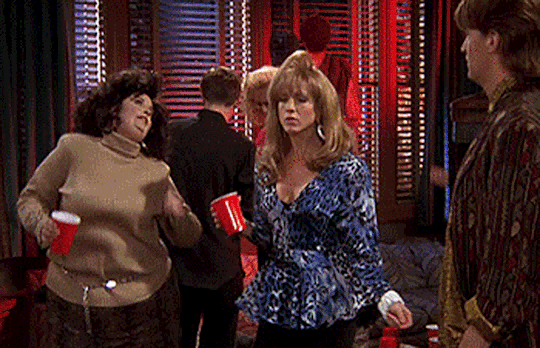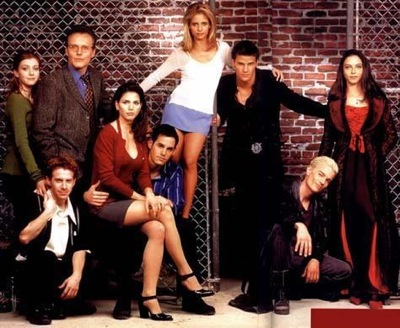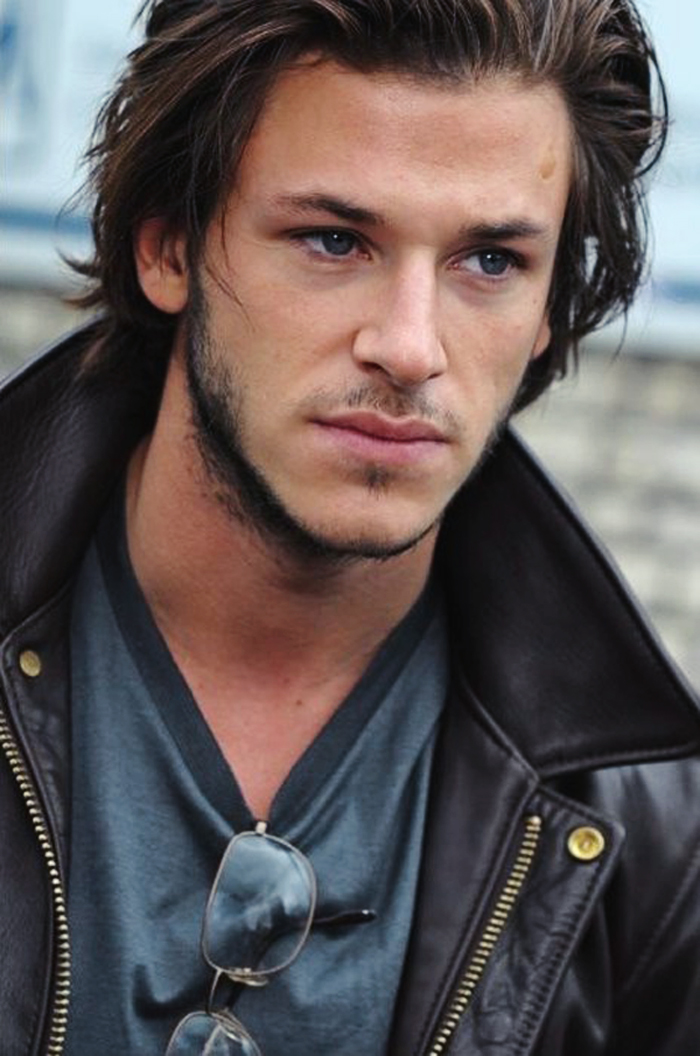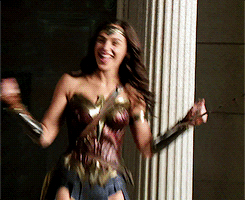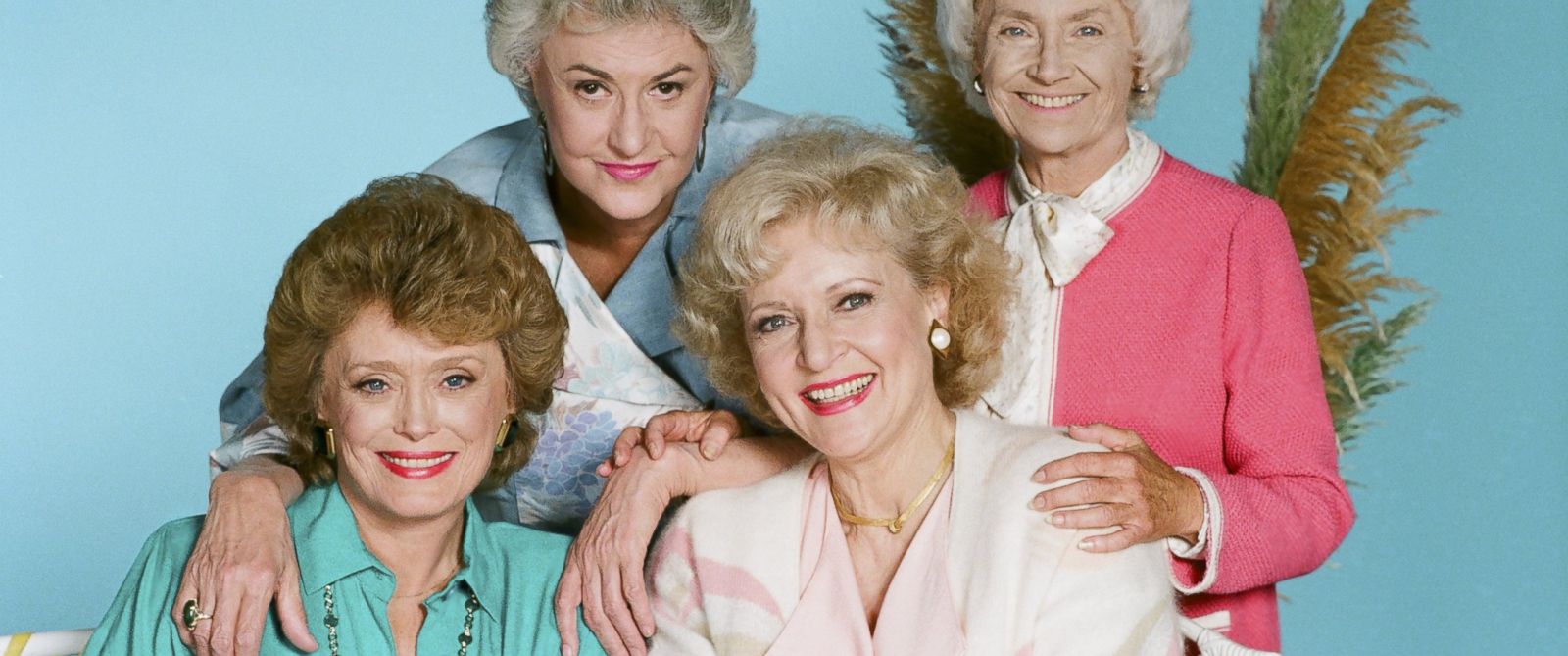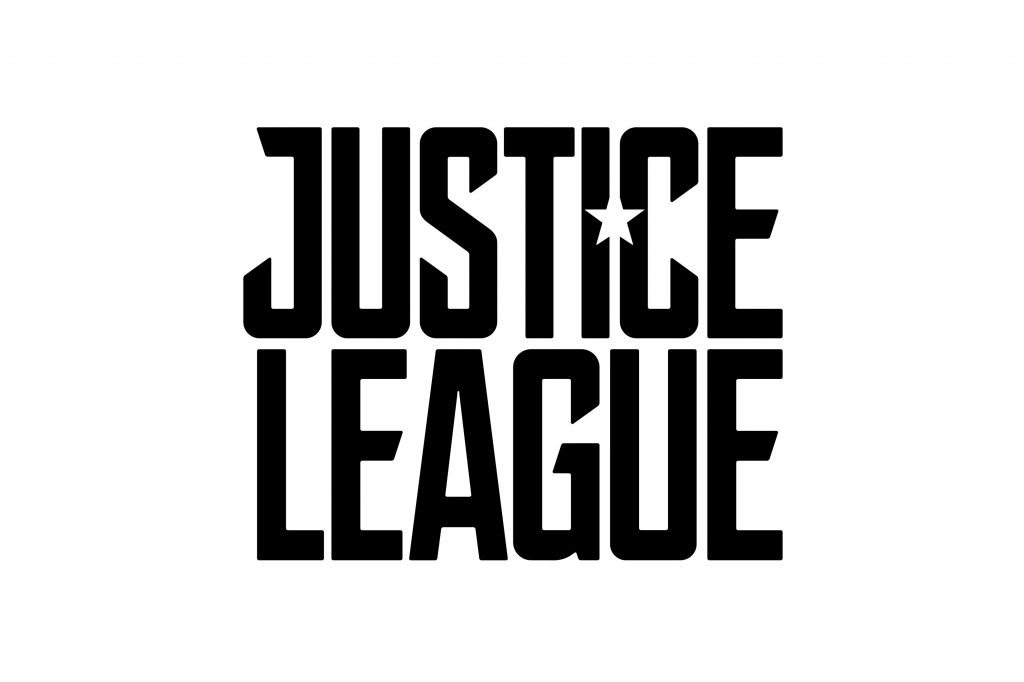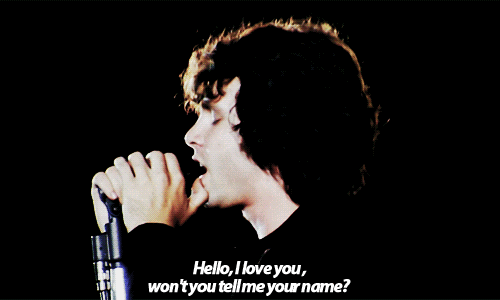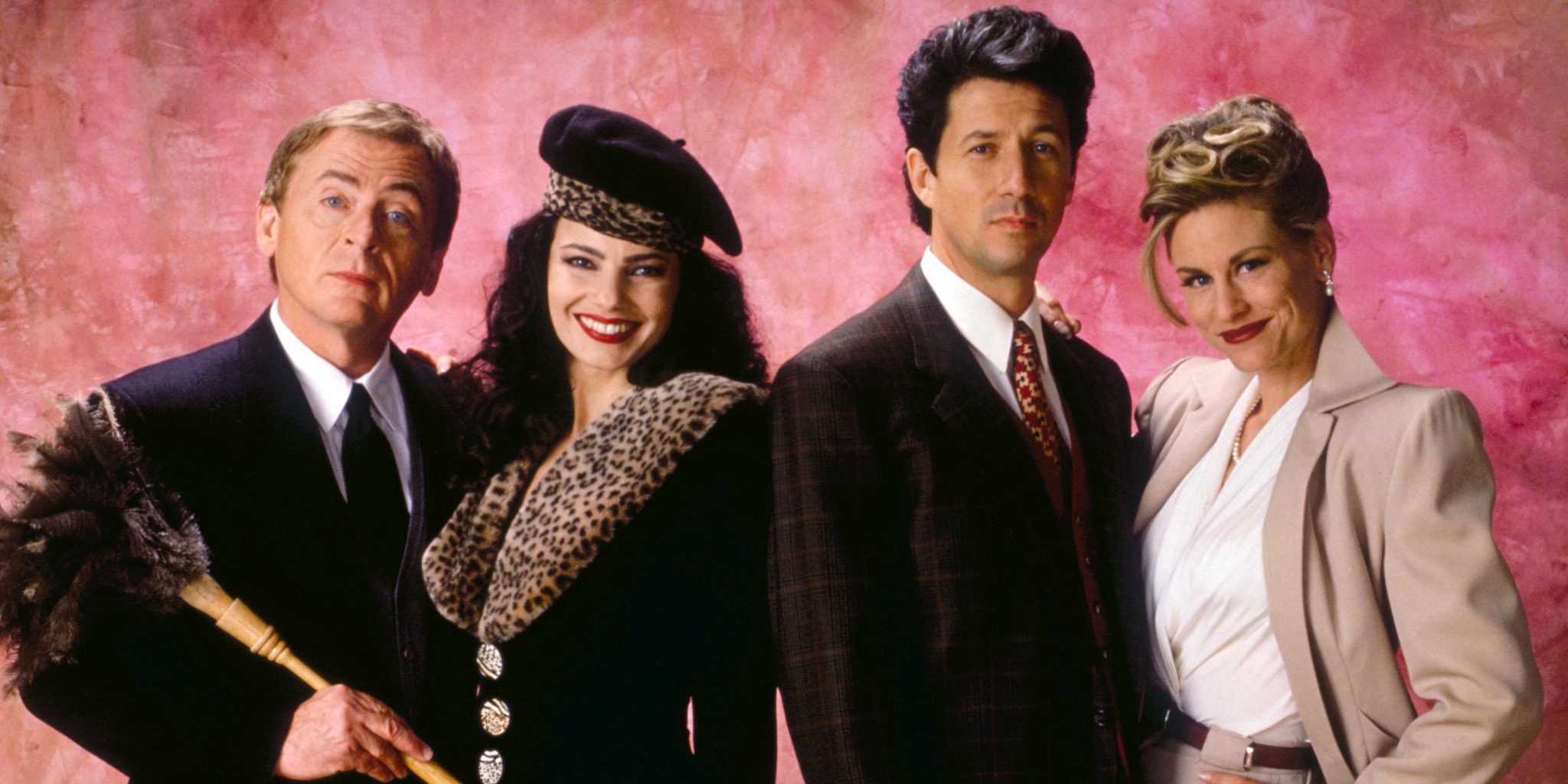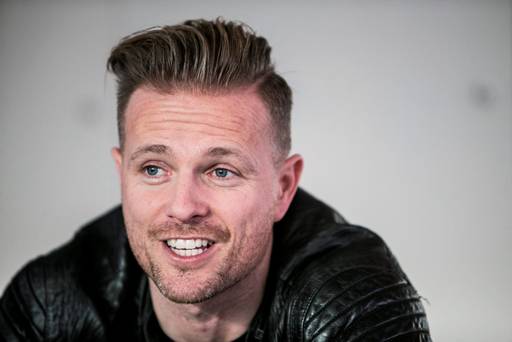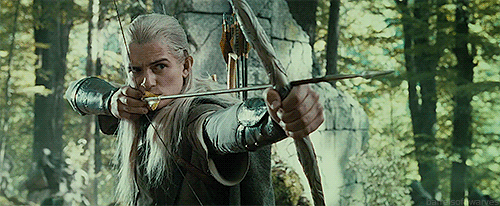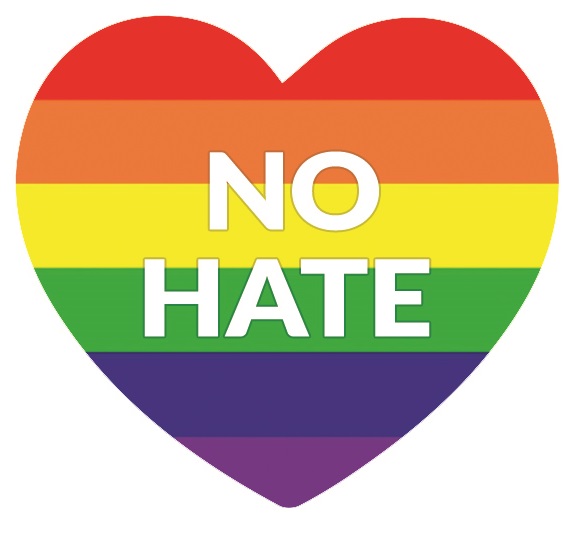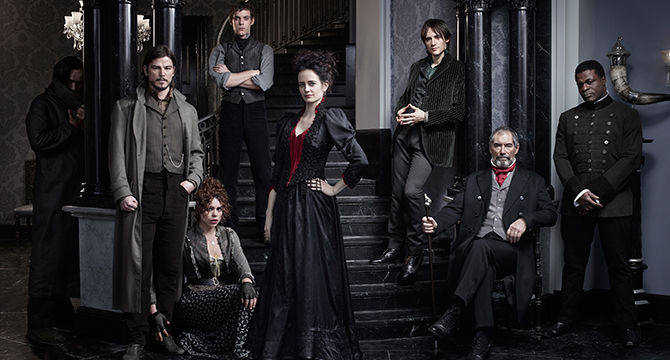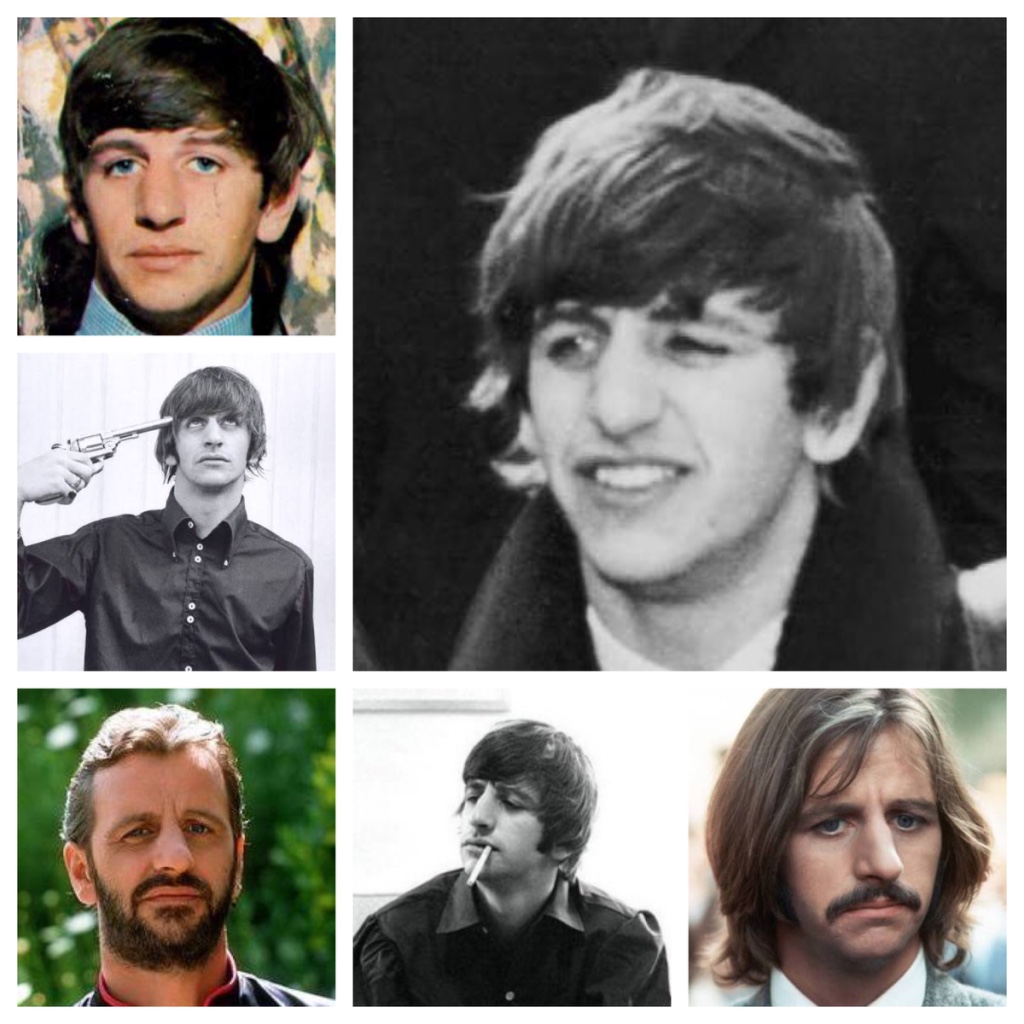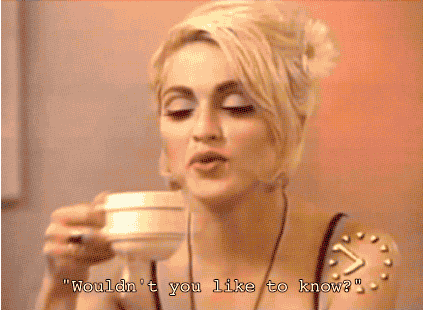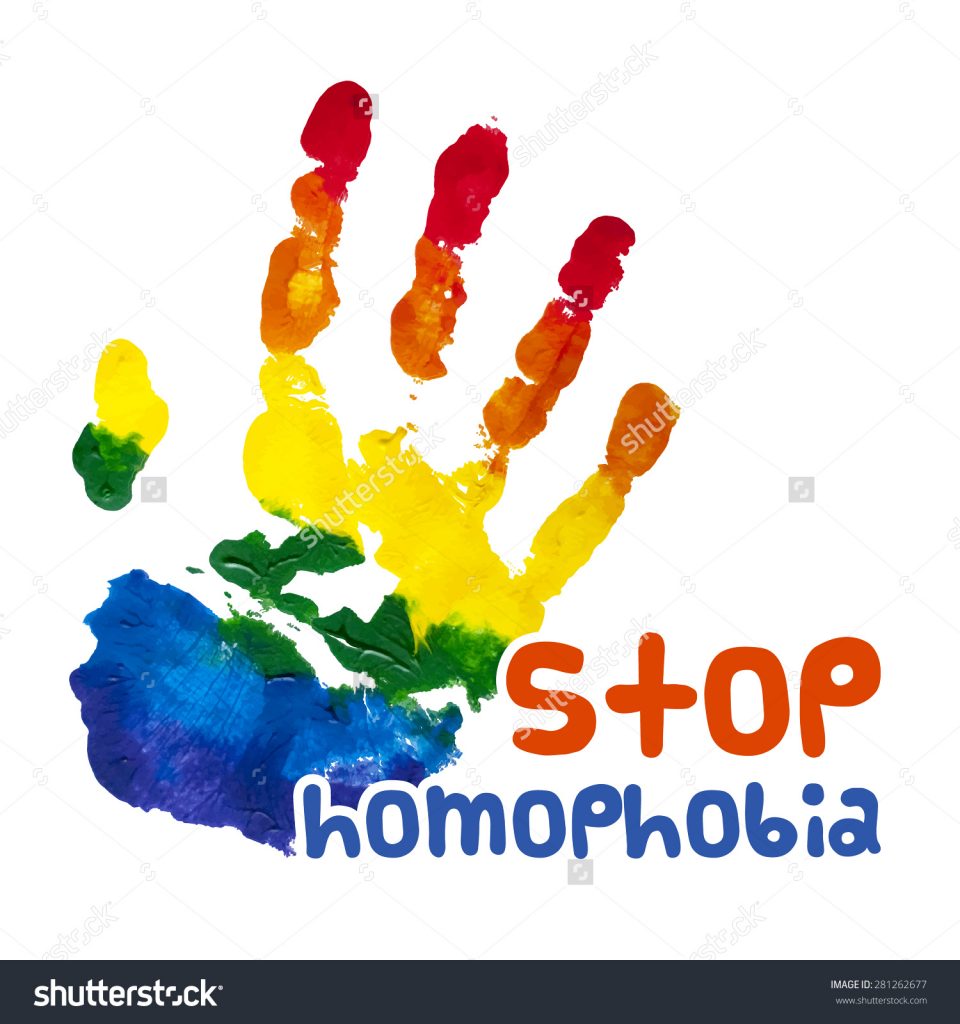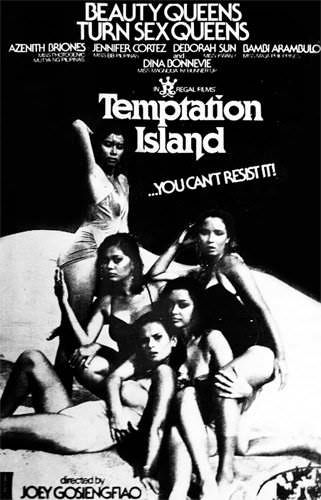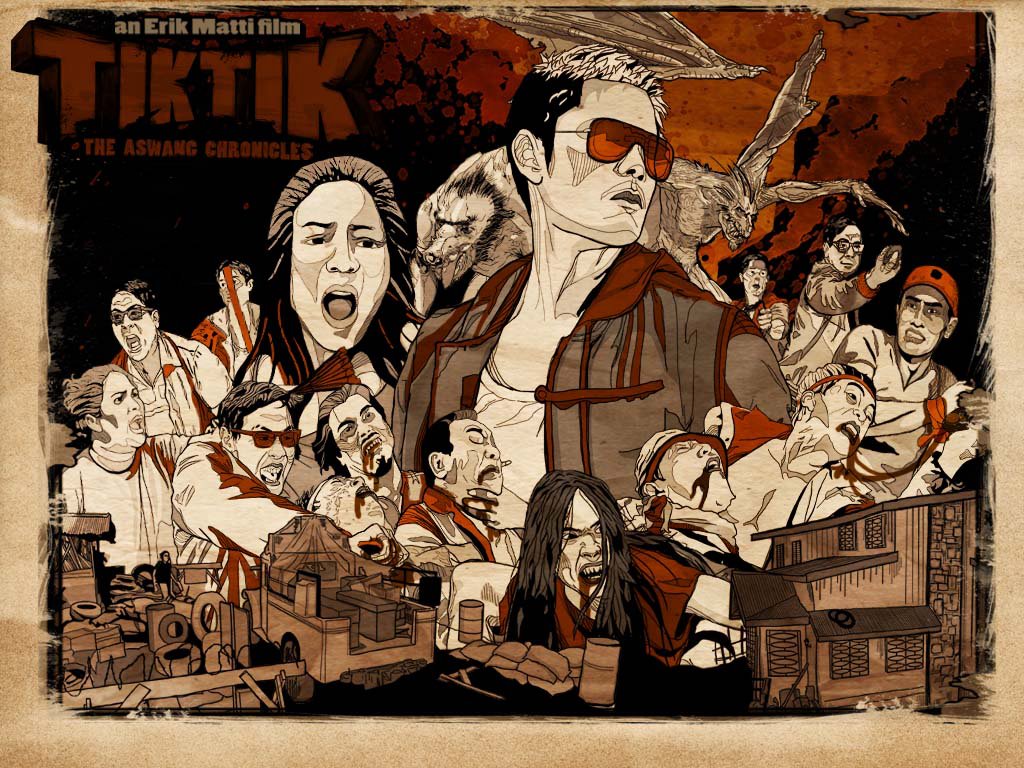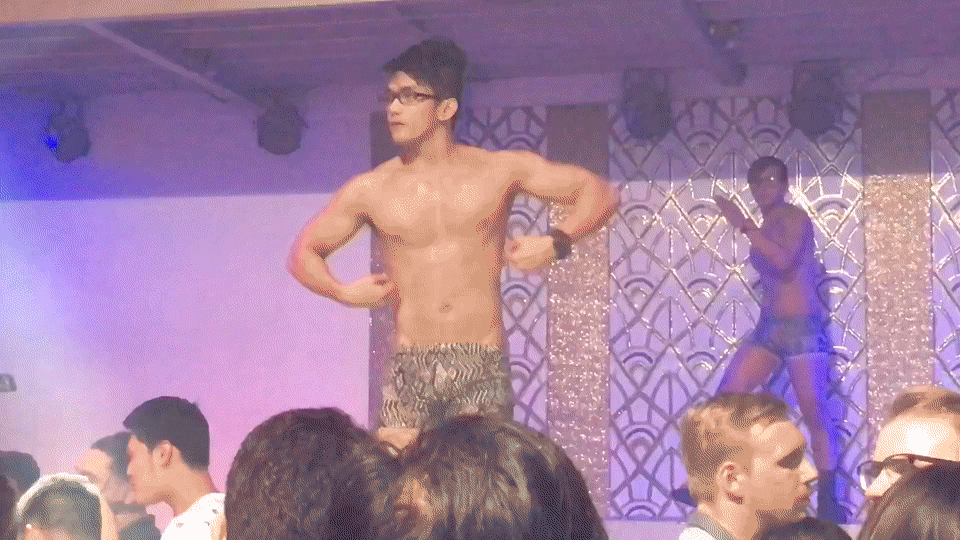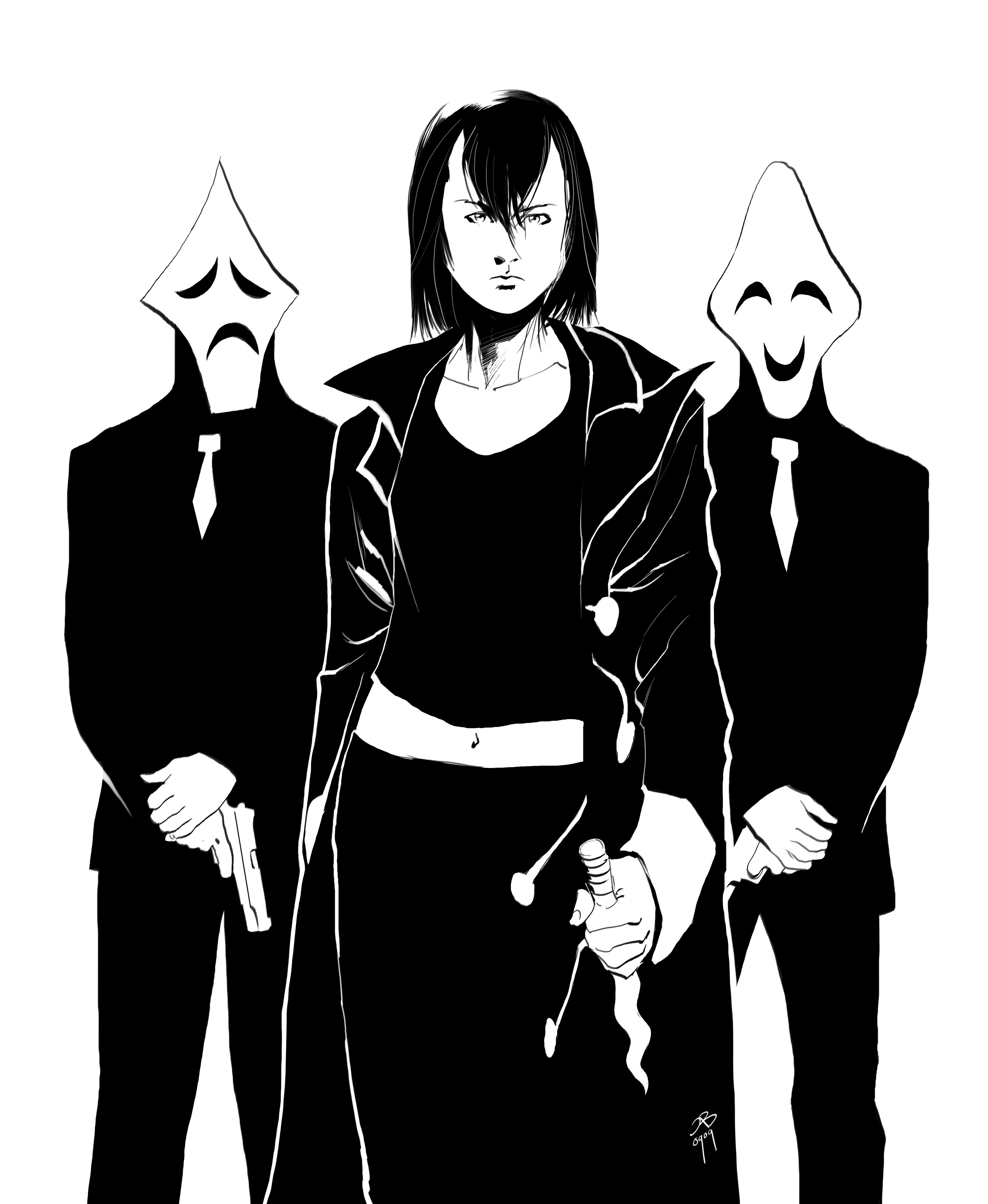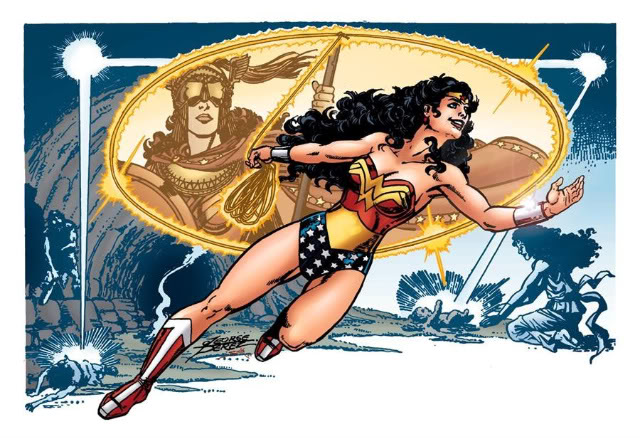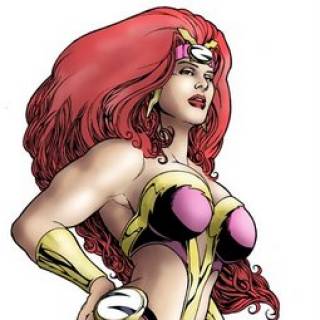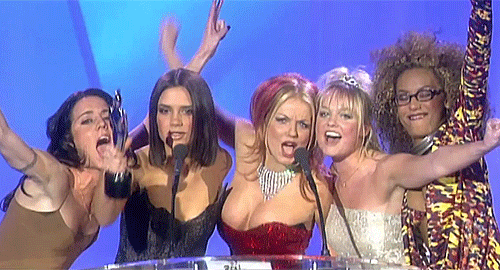Books are made of other books: An Interview with Ransom Riggs and Tahereh Mafi
by allancarreon on May.12, 2014, under Literature
I confess that I have not read many Young Adult books in a long time. Not counting the Hunger Games trilogy, which I picked up late last year mainly because of the movies, it must be almost two decades now since I’ve regularly read anything categorized as such. In fact, it’s been so long that these books were still classified under the “Juvenile Section” by National Bookstore when I was still reading them. I should be thankful they’re now called “Young Adult” because “juvenile” just brings up negative connotations of childishness. That, or else images of a young Brad Renfro being manhandled in the movie Sleepers.
This is not to say that I owe nothing to the genre. I grew up on R.L. Stine’s Fear Street as well as Christopher Pike. Heck, since I’m in confession mode, I may as well admit that I also read Sweet Valley High back then. Yes, I accept your judgment. Still, reading such books helped shape my eventual passion for writing. Just by reading, I learned things as simple as how to properly place periods and commas vis-a-vis quotation marks and as important as how to find a voice. These books also led me to seek out more mature material; Stine and Pike led me to my love of horror and fantasy, paving the way for Lovecraft, Tolkien, and Rice. This eventually set me down the path of wanting to write.
It was thus fortunate that I was given the opportunity to interview two New York Times bestselling authors of the genre, the husband-and-wife team of Ransom Riggs and Tahereh Mafi. They were in Manila and Cebu on a book tour to promote their latest works – Hollow City and Ignite Me, respectively.
I’ve never met any New York Times bestselling authors before, let alone interview them, so it was a very interesting assignment. After all, it’s not everyday you get to meet a pair who both made the bestselling list of the New York Times. It also gave me the chance to revisit the genre that I had not really read in so long; prior to my interview, I picked up a copy of Riggs’ first book, Miss Peregrine’s Home For Peculiar Children, to catch up on the genre.
It was an early Tuesday afternoon in late April that I sat with Ransom and Tahereh at Writer’s Bar in Makati to discuss matters of writing, literature, and the wonderful reception they received from their fans in Manila and Cebu. They were a very approachable couple who could quickly make you feel at ease n their presence, their responses punctuated with good humor, and the support that they provided each other was very apparent.
Below are highlights and excerpts of the interview. The full transcript is available at the end.
How did you like Cebu?
Tahereh: It’s great. The few glimpses we did get were pretty amazing. It’s so beautiful. It’s kind of like imagining Manila without as many skyscrapers and replacing them with greenery. It’s so very tropical and lush. People were so great.
Could you tell us about your experience in Cebu? How was the reception there?
Ransom: Wow!
Tahereh: It was really great. It’s been great in both Manila and Cebu. Even we didn’t expect such enthusiasm, but it’s been really wonderful, really humbling, really inspiring to see so many kids excited about books. It’s faith-restoring, you know?
Ransom: Yeah. What she said. It was great. It was really cool.
When did you decide to start writing?
Ransom: I was very young. I’ve been writing since I was, like, seven years old. I really loved it, and I wanted to be a novelist. Then, in middle school, I discovered movies, and I thought actually I’d rather be a movie director. I was on that track for a long time, and I ended up going to film school. And then, I just got an opportunity to write a book out of the blue about four years ago.
I did read about that. You had some vintage pictures, if I’m not mistaken?
Ransom: Yeah. It was “collectorable” photos, and I thought that they would (make for) an interesting book. So I ended up doing what I wanted to do as a child, that I’d forgotten how passionate I was about it.
I know you mentioned that you started with these vintage photographs, and you wanted to drive a story around those photographs. What made you decide to go to this genre (horror/fantasy), as opposed to maybe a more straightforward…
Ransom: Historical book?
Historical book, yes, as opposed to horror/fantasy.
Ransom: I’ve just always loved fantasy stories and strange stories and stories about other worlds that are within our own world. I thought that using the photos as a gateway into a world like that would be an interesting idea. So it starts out in my world, in the town I grew up in, in Florida which seems so ordinary, then it transitions into this extraordinary… like strange children, and time travel, and all that. Total unreality.
Why did you choose Wales (as the setting for the extraordinary world)?
Ransom: I chose Wales because I felt America didn’t seem magical enough, and I wanted them to still speak English. Americans don’t know anything about Wales, so I could feel free to invent lots of fake things, and no one would know the difference.
How about you, Tahereh? How did you start writing?
Tahereh: I have been a life-long reader. I actually didn’t start writing until just after I graduated from college. I never thought I could write a novel, which just seemed so tremendously difficult… It seemed too big a task and so tremendously difficult, and I didn’t think I was up for it. It wasn’t until I rediscovered my love for young adult fiction, in particular, that I remembered what it was like to read a book for fun and just disappear into a story because it was a great story, and that really made me want to start writing.
Who’s your biggest influence? Or your favorite author, maybe?
Tahereh: … I always come back to J.K. Rowling. Somehow those books are the obvious answer that a lot of people might give, but I truly think she had a great impact on my life because the Harry Potter books were books that I grew up with and stayed with me and stay with me still.
Why did you choose (this) genre or that world?
Tahereh: I didn’t intentionally. The story evolved very much around the central character, Juliette. She has a lethal touch, and she’s living in this dystopian society where the government wants to use her as a weapon, and she learns to fight back and stand up for herself and what she believes in… I had to figure out what kind of world would she live in to sustain that kind of ability, and it became this dystopian world, this broken-down world with environmental problems, genetic defects, and mutations. Everything just fell into place.
Do you have a process in terms of writing? Like a certain time of the day, or do you have a routine, or do you write as it comes?
Ransom: All day. (Laughs) In chunks. Starting pretty early, and I just need peace and quiet and noise-canceling headphones. We actually work together at a desk, sort of a long desk, facing out into our yard on two laptops. It works really well. Some people think we’re crazy, but…
Tahereh: No, it’s great. I need the same thing. My process is the same. I need quiet, and I need lots of time.
Ransom: And caffeine!
Tahereh: And caffeine. I drink a lot of tea.
Since you mentioned that you work together, what are the challenges – if any – of being married to another writer?
Ransom: It’s so much better. It’s great.
Tahereh: It’s wonderful.
Ransom: We support one another. We read each other our work and have instant feedback and encouragement. (I) have a person who understands all my weirdness and hang-ups and habits and things, who understands why I’m pacing around talking to myself at midnight sometimes.
Tahereh: Yeah. It’s great. I think we are very, very lucky in that we both are really big fans of each other’s work. That’s so important because it would be really difficult to lie to someone you love, and so that makes it really easy. I love his stories. I love how he writes, and it’s so fun to watch him go through this creative process and throw his heart into something that then becomes a beautiful story and that I can enjoy and hear first-hand from him.
Do either of you do a lot of research to make your worlds much more realistic, or do you do it more of “on-the-fly” and really be very creative and very imaginative?
Ransom: I do lots of research, but I’m not totally convinced that it’s just not mostly procrastination. (Laughs)
Tahereh: I research a few things. The things that I really don’t know, like fight scenes. Like I had to figure out how to disassemble a gun and reassemble it. And then, you’ve learned terms and techniques for the military and things like that… and then there are other things like – my story, it’s about a girl who’s been, when you first start the book, she’s been locked up for almost a year, she’s been in perfect isolation. So I spent some time in a deprivation chamber. That was interesting to feel what it was like to get my senses totally cut off.
You spent time in a deprivation chamber?
Tahereh: Yeah. Not very long, just … five, ten minutes? Something like that. And it was insane… It was horrifying. I think of myself as a pretty normal, well-adjusted person, and I thought I’d be able to handle it, and within the first thirty seconds I was already thinking I was hearing things. I felt totally paranoid, like I thought at any moment someone would break in… I was thoroughly convinced by the end of that experience that if you were in isolation for too long, you would just completely lose your mind.
(Tahereh) mentioned earlier some of her influences, like J.K. Rowling. What about you, Ransom? Do you have any influences in terms of your writing?
Ransom: Early on, it was C.S. Lewis and Tolkien. Stephen King. And a writer named John Bolaris who did mysteries for kids that were really wonderful. And now I have lots of influences, most of whom are friends of mine in the Y.A. world who are beautiful, brilliant writers. Like my wife. And there’s a writer named Jandy Nelson whose work is just worth the gorgeous poetry flowing off the page. And Veronica Rossi, who we’re touring with, is just an effective storyteller. My buddy, John Green. I didn’t even know that Young Adult literature was a thing that people were doing today until we started writing these books, and I was, “Oh, wow!” Teenagers really care about books. They’re so enthusiastic. It’s really cool.
Do you think there is still a future in Young Adult literature? Because there’s this impression – not necessarily true – that some of the young people today have too many other interests that compete with books right now (video games, television, the internet, social media, etc.).
Ransom: I think that’s been true for at least the last twenty years. I would never have explored this if that were going to be a problem.
Tahereh: I think books have been around forever, and I feel like they’re not going anywhere. I think, in fact, maybe they will change shape…
Like e-books.
Tahereh: Yeah, like e-books, and then audio books, and then maybe… I don’t know what the future holds. Maybe we’ll all be wearing glasses that read the books to us. And I’m not sure how that storytelling method will evolve, but I think that we will always be telling each other stories, and I think there will always be an appetite at every age for those stories. So I feel they’ve been around forever and will continue to exist. Only recently did we start putting a label on certain types of books and calling them “Young Adult,” but for years and years, these books have been around. It’s just that we never distinguished (them). There was, “This is for adults,” and “This is for small children,” and now there’s a widening of that gap in the middle.
Since you mentioned that there’s this “Young Adult” bracket, have you guys ever thought of trying to write for a more “Adult” market? Are there any plans, not necessarily soon, but in the future?
Tahereh: I would never say, “Never.” I have no immediate plans, but it’s always about the story. If the character comes to you as a young person, then that’s the story that needs to be told. But if the character comes to you as an older person, then that’s the story.
Ransom: I’m not really concerned what genre my stories are. I just want to tell stories.
Since you’re a filmmaker, how has that influenced the way you write?
Ransom: It’s like a chicken-and-egg thing. I went to film school and wrote a lot of screenplays, and I was telling stories with pictures. And then making a book with pictures was just another way of telling stories with pictures. I think screenplays honed my storytelling ability early on because they’re very concerned with, “Move the story along,” and, “Don’t bore the reader,” and plot has to thicken by page ten, and first act ends by page thirty, and… it was very freeing not to have to do all that stuff, but it was still ingrained in my mind, this sort of structure and telling story with pictures.
Can you tell us about the latest projects you are promoting now? In (Ransom’s) case, Hollow City, and in (Tahereh’s) case, Ignite Me.
Ransom: Hollow City is the sequel to Miss Peregrine, and it picks up right where Miss Peregrine leaves off. So it’s the same characters, more of the same story. If you liked the first book, you might like the second book.
Tahereh: Ignite Me is the third book in the Shatter Me series, the third and final book. So it wraps up the storyline and the characters. It’s Juliette basically back and ready to finish things off. There’s a lot of excitement, a lot of action, adventure, and lots of kissing. It was a lot of fun to finish up a series. So I’m happy to have it all out there.
You mentioned you pitched this as a series, so you probably had an idea where the story was going. However, did you plot everything in advance through to the last book, or did you plot it book by book and just see where it would go?
Tahereh: I had a very general idea of the trajectory of her character and how she would grow and how her character arc would evolve over the course of the series, but I didn’t know for sure. With the first book, I was really building the world within the characters, getting to know them and figuring out who they are and where they’re going. And then with the subsequent books, I was then able to play within the confines of the world I created.
How do you take book reviews? Do you read reviews of your work?
Ransom: I read the one from my publicist that he sends me. They’re usually friendly. (Laughs)
Tahereh: Yeah. Sometimes. I did initially, quite a bit, because it was all so new and interesting and you want to know (what people think). But now, I feel like once the series really gets going and finds its footing… only the people who actually felt like the series had something to offer pick up the subsequent books. And of course there are always the people who might have loved the first one (but) might not love the second one, and so forth. It just becomes easier, somehow, to not focus on the reviews as much and focus on the people you’re writing for. Once the series is out there, then the readers have, for the most part, they’ve found it. And so then you’re just writing for the people who enjoy the stories.
Did you experience a sophomoric slump in terms of writing the second book?
Tahereh: God, I hope not. (Laughs)
Ransom: Well, that was why (my) second book was so difficult. But, I mean, I hope it’s not crappier than the first book. That’s for you to decide.
Tahereh: Yeah, that’s for the reader to decide.
Ransom: No, no. No slump. It was great! (Laughs)
As young writers yourselves, what advice would you give to aspiring young writers?
Tahereh: Never give up. Never surrender. Read forever. It depends where you are as an aspiring writer. Are you an aspiring writer who’s never written a book? Are you an aspiring writer who’s written a book and is trying to get published? Are you an aspiring writer who’s just looking for basic tips and tricks on how to get through writer’s block? Ransom has unlocked this really beautiful way of describing how to write a book, which was – the answer is in other books, and I think that is so true. You can say this…
Ransom: No, I love hearing you say what I said. (Laughs)
Tahereh: (Laughs) He was saying that books are made of other books, and the answer to how to write a book is in other books. And so I think if you’re an aspiring writer who’s looking for help, just read. Infinitely. I’ve never taken a creative writing course in my life. I read my whole life. That was my creative writing course.
Ransom: You can’t device a lecture to teach someone how to write a book. It’s all instinct and feel, and reading a lot just helps your brain get used to the shape of a book and all of the different ways that story can be told and a character can be developed. It’s really important to develop a library of possibilities in your brain so that when you’re writing your own characters… you immediately have a million possibilities.
How do you develop your characters?
Ransom: (Laughs) By reading! This is a perfect segue.
Tahereh: Yeah. Get to know human beings. Pay attention to them, and just realize that everyone is very complex and very multi-faceted. Everyone you meet, you think you get it, you think you know them. You meet someone, and you analyze, “Well, you seem like this kind of person.” I think a good writer is also the kind of person who is able to recognize that a human being is so much more than you see and to understand that that human being in front of you who’s laughing currently has also felt great pain… And so it’s important for me as a writer, when building characters, to remember that even though they’re fictional they’re still human.
Backtracking a bit, we touched on writer’s block earlier. Have either of you experienced writer’s block?
Tahereh: Who hasn’t?
Ransom: I have a line about writer’s block in that I don’t believe it actually exists. It’s the result of you judging your own writing, becoming self-conscious. Sort of like stage fright. You get out on stage, and you’ve memorized all your lines, but you become conscious of everyone looking at you, so your mind goes blank. So if you can somehow get past the idea that you suck and people are going to hate you and what you’re writing is bad, then that block goes away.
Tahereh: … I’ve also found, for myself at least, that it’s also true that when I’m stuck like that, it’s usually because I’m trying to force the characters to go in a direction that is unnatural to the story. I often have to go back a couple of paragraphs and fix something, and then it unlocks the trajectory. Then the characters are like, “I am a character who has autonomy and independence. You’ve given me a mind and a body and a heart, and this is what I want to do.” Sso when I step back and change something, it unlocks an important twist in the story. From there, it’s like you’re changing the train tracks. All of a sudden you switch gears.
It just writes itself.
Tahereh: Yeah! Sometimes I feel like it really does. Being honest to the characters and understanding that they need to be dynamic and to not always fit into a very rigid plotline.
Especially if you create a character who is three-dimensional, they have a life of their own and start doing things you didn’t expect they would be doing.
Tahereh: Right! It sounds a little crazy, these aren’t real characters, but if you think about it as a writer and you think about the characters that you’ve created, and… you ask that character, “What’s your favorite color?” That character has an answer… When you realize that your character has the ability to become a fully-formed human being, you then realize that they also have the presence of mind to make their own decisions in your story. For me, that was really enlightening, and I had to realize that I had to let them go.
You mentioned earlier, “Books are made of other books.” So do you think what they say is true, that there aren’t really any new ideas in terms of writing? That it’s just how writers reimagine those ideas or how they approach the idea? Is there any new story out there?
Tahereh: Yeah, that was Ransom’s line. (Laughs)
Ransom: I think that is totally true. I don’t think that there are any “new” stories out there. I think that humans, as we know them to be for a hundred thousand years, have been telling the same stories over and over, just in different iterations and mutations, and that’s okay. Like every twenty years, it’s time to tell all the stories again but in their new mutations relevant to us. We can hear about something that we’re experiencing now from two hundred years ago, and it will resonate the way that it will if it’s told by someone we recognize.
Since Ignite Me is the last of (Tahereh’s) series, what’s next for you?
Tahereh: I’m currently working on something new, but I’m in that weird place where I can’t really talk about it yet. But I’m very excited.
Same genre or something different?
Tahereh: A little different. I think a little different.
Ransom: And I’m working on the third book (of my series).
Did you have any messages for your readers?
Tahereh: Read a lot of books. (Laughs)
Ransom: Keep it weird! (Laughs)
That’s it. Thank you so much for your time. I appreciate it. Hope you enjoy the heat! (Laughs)
Tahereh: Yeah! (Laughs)
Ransom: It’s probably like Florida. (Laughs)
—
You may read the full transcript of the interview here:

